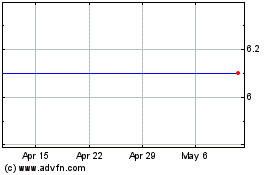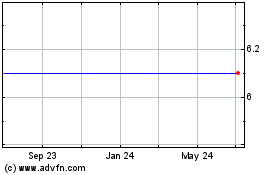A federal regulator's campaign to fight bias against minorities
is changing the way many car loans are priced. Those efforts could
mean some consumers will pay more.
The Consumer Financial Protection Bureau has reached more than
$200 million in antidiscrimination agreements since 2013 with
several large car-financing companies, including Ally Financial
Inc. and American Honda Finance Corp., over allegations that
dealers charged higher interest rates for African-Americans,
Hispanics and other minority buyers.
At least another eight large lenders are under federal
investigation by the CFPB or the Justice Department, according to
people familiar with the probes. They include J.P. Morgan Chase
& Co., Fifth Third Bancorp and Santander Consumer USA Holdings
Inc., which is majority-owned by a unit of Banco Santander SA.
Representatives for the lenders declined to comment. A Justice
Department spokeswoman declined to comment.
Some auto makers have responded by overhauling their loan
pricing in ways that will likely mean higher costs for some
borrowers. American Honda Finance Corp., a unit of Honda Motor Co.,
settled with the bureau and the Justice Department in July and
lowered one portion of its loans' interest rates, or markup, as a
result. But it also raised a less-negotiable component of its
rates, a move that could increase consumers' overall loan
costs.
A Honda spokesman said the company has made "adjustments and
modifiers in a way that continues to support our dealers' business
compensation as well as our customers' financing choices."
The results highlight the sometimes unpredictable consequences
of attempts to regulate lending practices. The CFPB's recent focus
on auto loans "will invariably lead to many consumers paying more
for auto financing," said Jared Allen, a spokesman for the National
Automobile Dealers Association, an industry group, which opposes
the bureau's initiative.
Efforts by the CFPB to police the fairness of auto loans have
accelerated in recent years under Director Richard Cordray. Critics
accuse the agency of overreaching. The Dodd-Frank law that created
the bureau in the wake of the financial crisis specifically
excludes car dealers from its oversight, and critics said the
bureau is holding lenders responsible for dealers' alleged
actions.
Patrice Ficklin, director of the bureau's Office of Fair Lending
and Equal Opportunity, said the CFPB is responsible for enforcing
the Equal Credit Opportunity Act, which outlaws discrimination by
creditors. She said the CFPB has taken up the issue because
car-loan lenders' policies can lead to unlawful discrimination.
"I expect we'll root that out," she said.
The CFPB said Honda's new rate structure helps protect consumers
from discrimination.
There are several moving parts to how a car loan is priced, but
the one the CFPB has zeroed in on concerns pricing arrangements
between lenders and dealers. Car buyers are typically quoted an
annual percentage rate, or APR, that includes a base wholesale rate
charged by financing companies plus a variable markup added by the
dealer.
The CFPB alleges the dealers' ability to determine the markup,
which isn't disclosed to consumers, has resulted in higher interest
rates for minority borrowers than for white borrowers of similar
credit standing. Using an analysis of borrowers' last names paired
with locations, the CFPB and the Justice Department said in
settlements with Ally and Honda that Hispanics, African-Americans
and Asian-Americans were charged about 0.2 percentage point to 0.3
point more in dealer markups on average than white borrowers. That
added $200 to $300 more in interest payments over the life of the
loans.
The CFPB has pressed lenders to lower the caps they set on
dealer markups, which generally run as high as about 2.5 percentage
points, or to switch to flat fees, which can be a percentage of the
loan amount or a set dollar figure. The CFPB said lenders wanting
to leave their markups unchanged should step up oversight of
dealers to make sure discriminatory pricing isn't occurring.
As part of its settlement with the CFPB and Justice Department,
Honda's lending unit agreed to lower its maximum dealer-markup cap
to 1.25 percentage points from 2.25 points. But it has also decided
to pay dealers 1% of the loan value out of its own pocket, while
also raising the wholesale rate for car loans.
Under Honda's new pricing plan, borrowers with a relatively high
credit score of 760 or above would pay a wholesale rate of at least
3.4% for a new car loan, up from 2.3% before the settlement,
according to a pricing sheet distributed by Honda to dealers in
Texas and reviewed by The Wall Street Journal. Add in a dealer
markup of 0.5 percentage point, for example, and the borrower could
end up with an annual percentage rate of 3.9%, compared with 2.8%
before. Over the life of a four-year $25,000 loan, that would add
$586 in interest payments.
For borrowers who are getting a lower dealer markup now compared
with what they would have received before the change, the effect
may be less significant. The new higher wholesale rate can also be
reduced in some cases, including for borrowers who arrive at the
dealership with a lower-rate loan from another lender.
Other lenders have tweaked their pricing as CFPB scrutiny in the
industry has been growing. BB&T Dealer Financial Services, a
unit of Winston-Salem, N.C.-based BB&T Corp., in July replaced
its variable dealer markup with a flat fee that pays dealers 3% of
the loan amount up to $2,500.
David Westcott, who owns a dealership in Burlington, N.C., that
sells mostly new Buicks and GMCs, said his company hasn't given out
a loan from BB&T since the flat fees went into effect. Mr.
Westcott said the annual percentage rates for borrowers on
BB&T's loans are now higher than the ones he can arrange with
other lenders that still permit dealer markups. There is no
indication that BB&T was under investigation by the CFPB.
A BB&T spokesman said that the lender tested and evaluated
flat fees for two years and believes "this is a good long-term
business decision for both consumers and our dealer partners."
CFPB director Mr. Cordray has previously described the lender's
July change as a "proactive step to protect consumers from
discrimination."
Toyota Motor Corp.'s financing arm, one of the eight lenders
under investigation, declined to discuss its talks with regulators.
But a spokesman said, "we take seriously our commitment to
diversity and inclusion" and that the unit "has no visibility into
the race or ethnicity of our customers."
Write to AnnaMaria Andriotis at annamaria.andriotis@wsj.com and
Gautham Nagesh at gautham.nagesh@wsj.com
Subscribe to WSJ: http://online.wsj.com?mod=djnwires
(END) Dow Jones Newswires
August 31, 2015 12:55 ET (16:55 GMT)
Copyright (c) 2015 Dow Jones & Company, Inc.
Banco Santander (NYSE:STD)
Historical Stock Chart
From Mar 2024 to Apr 2024

Banco Santander (NYSE:STD)
Historical Stock Chart
From Apr 2023 to Apr 2024
